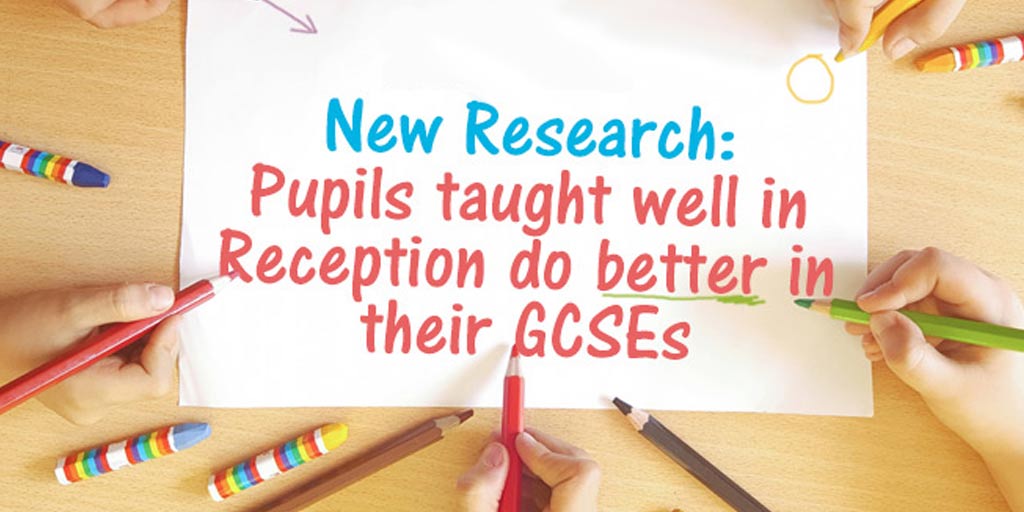Helping teachers give every child the support they need
By Dr Christine Merrell It can be hard for even the best teachers to notice differences in the behaviour of one child in a busy primary classroom,...

Login | Support | Contact us
Professor Christine Merrell : Mar 10, 2017 12:07:00 PM
3 min read

Using longitudinal data from our PIPS and InCAS assessments (now evolved into Cambridge Primary Insight), we have been able to explore this question.
Our research has shown that during their first year of school (the reception year), children make an educationally significant and impressive amount of progress in their early reading and mathematics development. In Scotland, for example, children make many more months of progress at school than would be expected from natural maturation1.
If children have an effective teacher in their first year of school, the boost in their learning compared with children in less effective classes is still evident at the end of primary school when they are age 112 .
A newly published paper3 by Hans Luyten of the University of Twente, Netherlands, with Christine Merrell and Peter Tymms of Durham University has investigated the contribution of school to the learning gains of children as they move through the primary years.
This paper analysed data from Cambridge Insight's (formerly CEM) InCAS monitoring system. InCAS is unusual in the world of assessment because it is a single assessment that can be used with children right from age 5 up to age 11. It is adaptive so children only see questions that are close to their own ability level. The younger children are presented with questions at the easy end of the range and older children are presented with more challenging ones but the important thing is that all of the questions in a section, say reading comprehension, are on the same scale.
We use a technique called Rasch Measurement to calculate the level of difficulty of all questions in a section and produce a scale of difficulty on which we can position each child in terms of their ability. Each time a child is assessed with InCAS, we can see their progress up the scale.
For this study, we explored the progress of children who had been assessed with InCAS in every school year from Year 1 – Year 6. The study included 3,500 children from 20 schools. The schools were independent schools which had used InCAS with all year-groups every year for the six years.
We found that school makes a substantial contribution to children’s learning and we have been able to quantify learning gains in Effect Sizes.
We also found that as children get older, although they make progress, the learning gains slow down. This is more so for reading than for general maths. By the end of primary school, many children are fluent in word recognition and decoding, and have a good grasp of comprehension but they are continuing to learn new topics and areas in maths. By the top end of primary school, children are using reading to learn rather than learning to read and so this slower progress in reading gains is not entirely unexpected.
In terms of Effect Size, in the younger year-groups, the learning gains are around 0.55 for reading and 0.47 for maths for a year of school. At the top end of primary school, the Effect Sizes are smaller for a year of school. We can see a difference between reading (Effect Size = 0.08) compared with maths (Effect Size = 0.27).
Whilst we see that gains in word recognition, decoding and reading comprehension appear to decrease as children move through primary school, this is not an indication that they are not developing in other areas.
Although many children are reaching a level of fluency in some of the basic reading skills, they need to continue to develop their vocabulary and more sophisticated comprehension skills so that they can access and use ever more increasingly complex language and written information.
Find out more about Cambridge Insight's InCAS assessment (now evolved into Cambridge Primary Insight)
1 Tymms, P., Merrell, C. and Buckley, H. (2016) Children's development at the start of school in Scotland and the progress made during their first school year: An analysis of PIPS baseline and follow-up assessment data. Research report for the Scottish Government. ISBN: 9781785448942. http://www.gov.scot/Publications/2015/12/5532/0
2 Tymms, P., Jones, P., Albone, S., & Henderson, B. (2009). The first seven years at school. Educational Assessment and Evaluation Accountability, 21, 67-80.
3 Luyten, H., Merrell, C. and Tymms, P. (2017). The contribution of schooling to learning gains of pupils in year 1 to 6. School Effectiveness and School Improvement. Published on-line.

By Dr Christine Merrell It can be hard for even the best teachers to notice differences in the behaviour of one child in a busy primary classroom,...

By Professor Christine Merrell Cambridge Insight was formerly known as the Centre for Evaluation & Monitoring (CEM). Research from academics at CEM...

As the new school year draws near, many teachers will be planning the ‘educational journey’ for their new students, and knowing precisely where all...